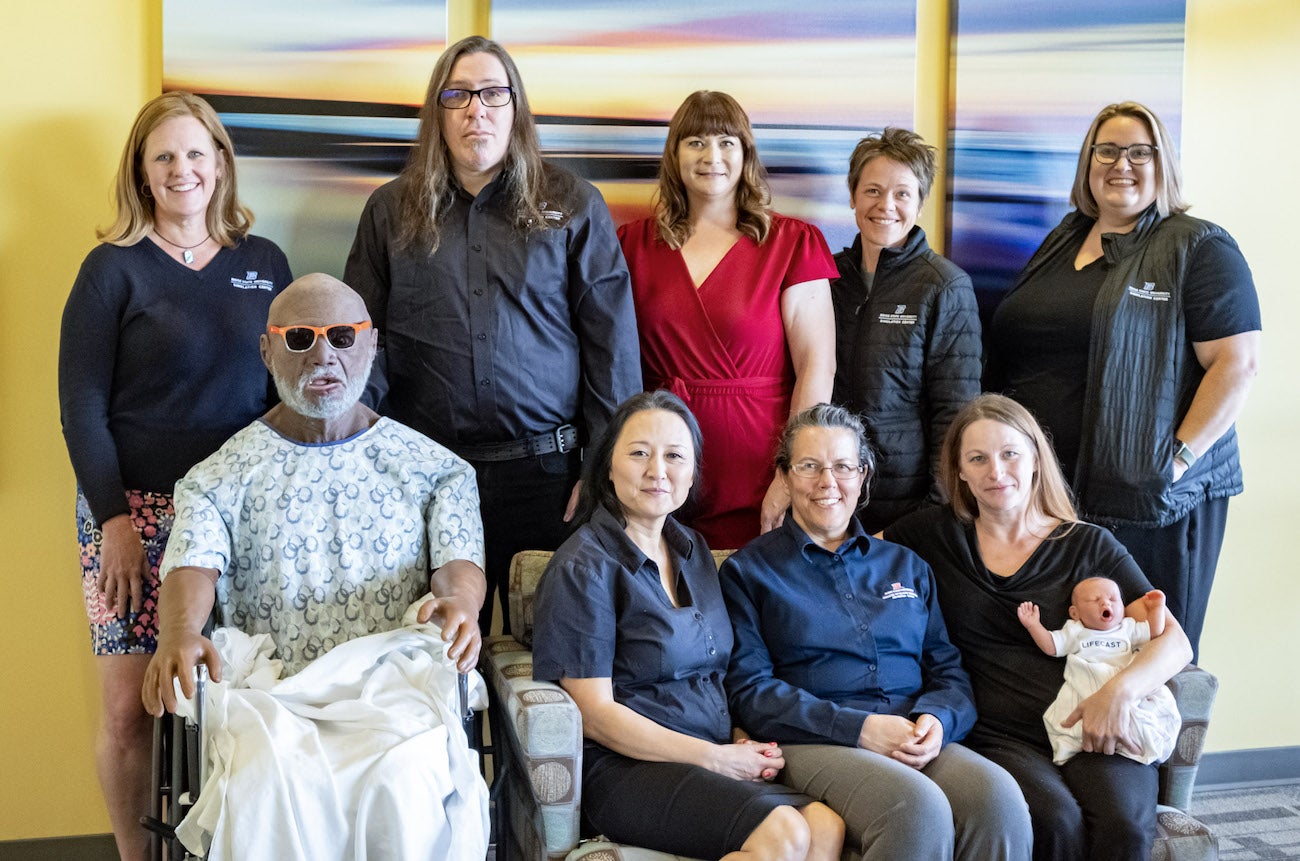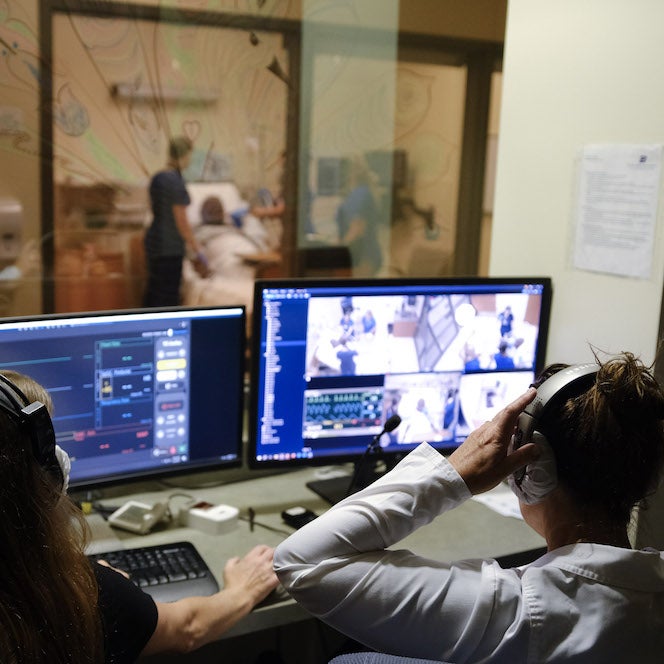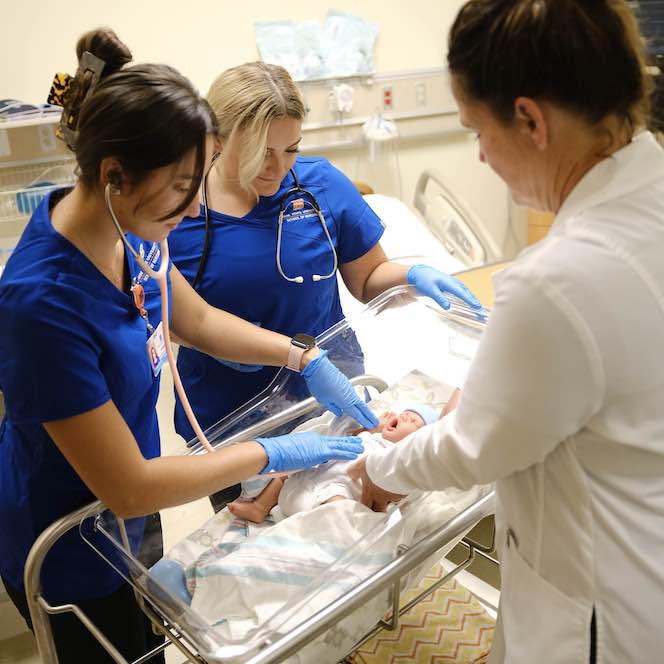The College of Health Sciences Simulation Center, the state’s first fully-accredited simulation center, received re-accreditation status through 2028. The Society for Simulation in Healthcare renewed the center’s status as a fully accredited institution in teaching/education as well as research. It first earned its teaching/education accreditation status in 2013, adding the research status in its next cycle of re-accreditation and further distinguishing Boise State’s center.

Casey Blizzard, Simulation Center operations coordinator, says the center’s staff and faculty are uniquely qualified to deliver high-quality simulation education because of their collective experiences.
“We have nurses from every aspect of care involved: pediatrics, behavioral health, emergency room, long term care and hospice,” Blizzard said. “We have dedicated staff who take their jobs really seriously. The simulation specialists are experts in their fields.”
In addition to thorough documentation, the rigorous accreditation process also included interviews with Simulation Center staff and faculty. Afterward, reviewers spoke highly of the team’s “dedication to collaboration” and collective energy toward student success, said Tracee Chapman, the simulation faculty development coordinator.

“The reviewers noted that our approach to integrating telehealth and virtual care into simulation was innovative and relevant to producing workforce-ready nurses,” she said. “They also appreciated the research partnerships between clinical and tenure faculty members.”
Reviewers were impressed with an online dashboard the team uses to track their scholarly work. Kaylin Holmquist, the School of Nursing’s instructional design analyst, designed the dashboard.
“The strengths of our simulation center are rooted in our open, collaborative environment,” Chapman said. “We support faculty members who want to grow in simulation through research, scenario writing and mentoring in new simulation content delivery. Our faculty team members are encouraged to try their ideas, and we help facilitate bringing simulation activities into didactic courses such as [first semester] fundamentals and [second semester] behavioral health.”

Looking to the future, Chapman mentioned several projects in the works, including faculty development in grant-writing, obtaining new manikins and expanding the center’s standardized patient program.
“Our main focus is to provide safe and evidence-based experiences for the students in the simulation and practice labs,” she said. “Our new curriculum has given us the opportunity to bring simulation into the lab and expand the students’ exposure to clinical judgment through hands-on practice.”
The College of Health Sciences Simulation Center educates students in the nursing, radiologic sciences and respiratory care programs every semester.
To receive accreditation, simulation centers must adhere to core standards regarding their mission and governance; program and resource management; human resources; program improvement; integrity; and goals for expanding the field of healthcare simulation. The accrediting body also evaluates assessment, education and research standards.